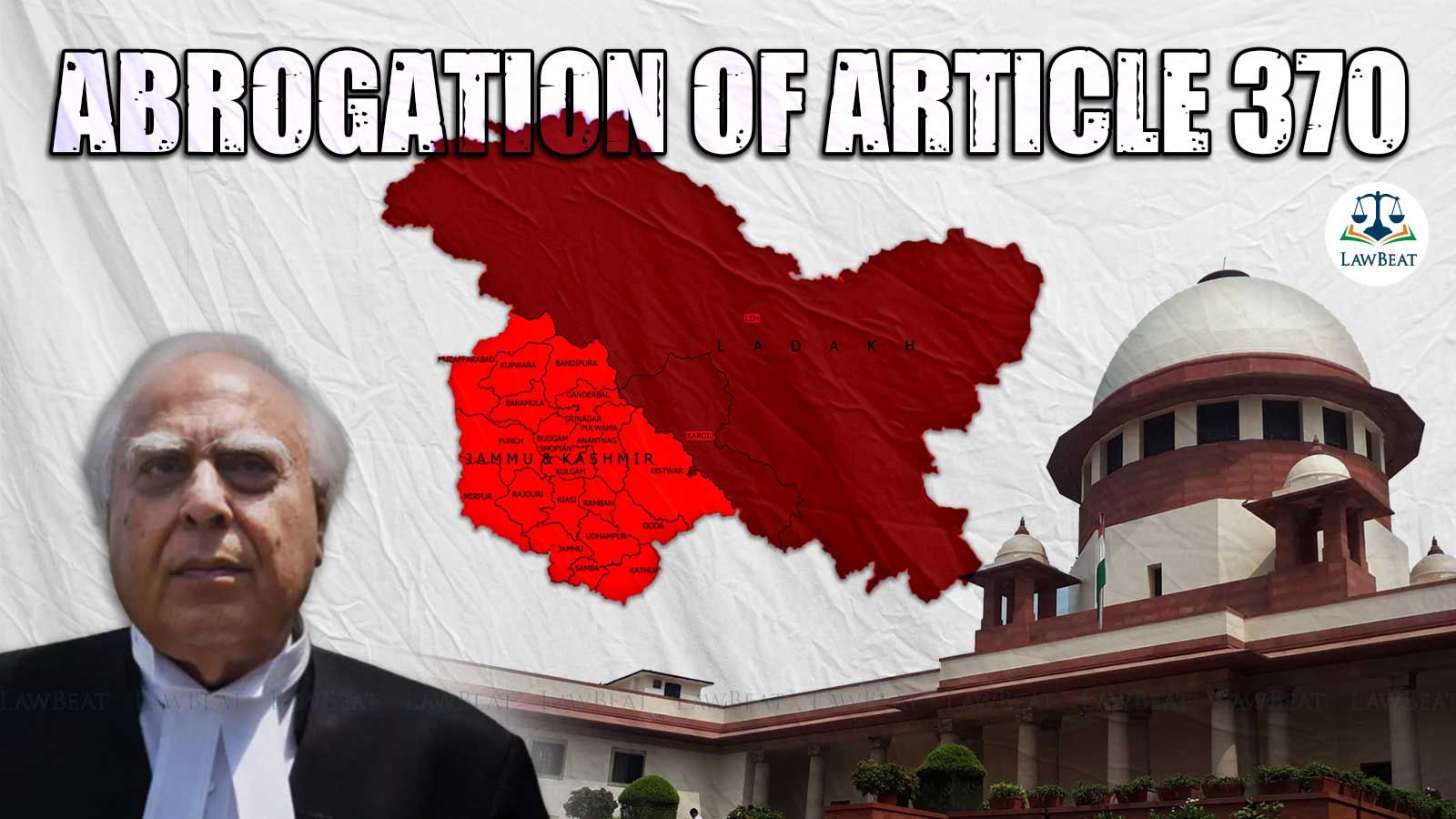"Article 370 abrogated through a political act; not constitutional procedure", Sr Advocate Kapil Sibal tells Supreme Court

The pleas challenging abrogation of Article 370 have submitted that said provision was a self-contained Code which defined and regulated the relationship between the State of Jammu and Kashmir and the Union of India.
Senior Advocate Kapil Sibal told the Supreme Court today that the central government abrogated through a political act Article 370 of the Constitution of India, which granted special status to the erstwhile state of Jammu and Kashmir.
"...the govt of the day is staring at this provision and according to me through a political act, not a constitutional procedure declare that it was to be tossed out of the window..such a political act cannot be done by the parliament, it cannot take such a decision..", Sibal told a five judge bench hearing the pleas challenging the abrogation of Article 370.
The senior lawyer further told the constitution bench that while nobody could deny that Jammu and Kashmir was with the Union of India, there is a special relation which could not be jettisoned.
A CJI DY Chandrachud led bench was further told that the parliament while abrogating Article 370, exercised the will of the people of Jammu and Kashmir.
"Was it not an exercise of political power without reference to Article 370..can such a power be exercised in the manner in which it was exercised..", a bench of Justices SK Kaul, Sanjiv Khanna, BR Gavai and Surya Kant was further told.
Sibal further argued that the abrogation was a political act, which could not in fact be done by a legislative body, like the Parliament, which is controlled by the Constitution.
At the beginning of the hearing, Sibal submitted before the bench that it was a historic moment for him as the supreme court would be analyzing why history was tossed out on August 6, 2019 and whether the procedure adopted by the parliament was consistent with what democracy stands for and if the will of J&K people can be silenced.
"Most of the responsibilities and power of the erstwhile state were in tandem with the Constitution of India, so there was no reason to take away this right..", top court was further told today.
Recently, the central government had filed its affidavit in the matter submitting that the abrogation of Article 370 was a historic constitutional step which has brought unprecedented development, progress, security and stability to the region, which was often missing during the old Article 370 regime.
In its most recent counter affidavit filed in the pleas challenging the abrogation of Article 370, the Union of India had further submitted,
" ...since 2019, the entire region has witnessed an unprecedented era of peace, progress and prosperity. It is submitted that, life has returned to normalcy in the region after over three decades of turmoil. It is submitted that schools, colleges, universities, hospitals and other public institutions are functioning efficiently without any strikes or any kind of disturbances during the last three years. The earlier practice of daily hartals, strikes, stone pelting and bandhs are things of the past now."
Adding that government has adopted a zero tolerance policy towards terrorists, the Union has added that the work on transit accommodation for the Kashmiri Pandits for their safe return to the valley is in the advanced stage and is expected to be majorly completed in the next one year.
In April last year, the Top Court had said that they will consider listing the batch of petitions challenging the abrogation of Article 370 in Jammu and Kashmir before a 5 judges bench after summer vacations.
One of the petitions has stated that "Article 370 of the Constitution of India is a self-contained Code which defined and regulated the relationship between the State of Jammu and Kashmir and the Union of India. Apart from Article 370, Article 1 of the Constitution of India would apply to the State of J & K."
Case Title: IN Re: ARTICLE 370 OF THE CONSTITUTION
